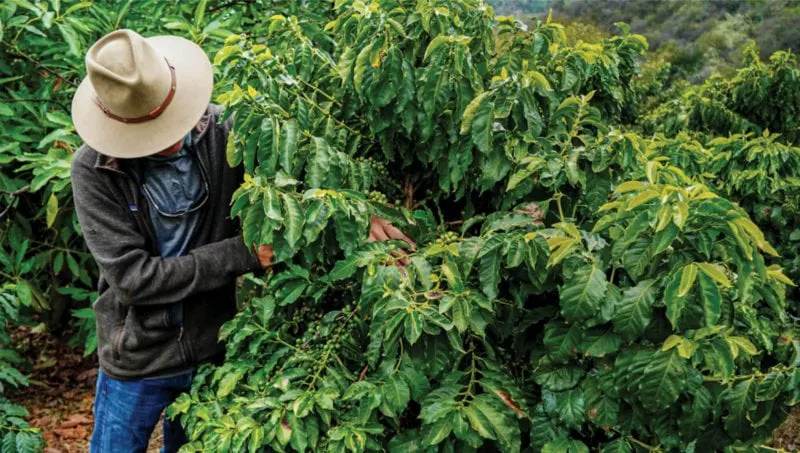Viewpoint: Can regenerative agriculture save the beleaguered coffee industry from climate change devastation?
Viewpoint: Can regenerative agriculture save the beleaguered coffee industry from climate change devastation?


[A]fter generations of cultivating coffee as a crop, irresponsible farming practices such as poor water management and dependency on harmful fertilizers and pesticides — which prioritize production and profit over sustainability — have left the coffee industry vulnerable to climate change.
As temperatures rise, the likelihood of droughts increases exponentially, leading also to an uptick in diseases that kill the pollinating insects necessary for coffee to grow. But the impact is not irreversible and a process called regenerative agroforestry may be the key to preserving the industry upon which so many rely.
Regenerative agroforestry is a process in which native trees and shrubs are purposefully integrated into farming systems in order to increase soil nutrients, encourage biodiversity and act as natural pesticides and herbicides for other flora within the system. In its wild state, coffee plants thrive in forested or shaded environments, and the reintroduction of tall trees and plants mimics this natural habitat while maintaining optimal plantation design for high-yield coffee farming. Studies show that coffee plants grown in dense shade can thrive for centuries.
As climate change intensifies, the coffee industry will irreversibly change. Introducing regenerative agroforestry whenever possible will combat the environmental and economic impacts climate change has already taken on the industry.
Read the original post

 | Videos | More... |

Video: Nuclear energy will destroy us? Global warming is an existential threat? Chemicals are massacring bees? Donate to the Green Industrial Complex!
 | Bees & Pollinators | More... |

GLP podcast: Science journalism is a mess. Here’s how to fix it

Mosquito massacre: Can we safely tackle malaria with a CRISPR gene drive?

Are we facing an ‘Insect Apocalypse’ caused by ‘intensive, industrial’ farming and agricultural chemicals? The media say yes; Science says ‘no’
 | Infographics | More... |

Infographic: Global regulatory and health research agencies on whether glyphosate causes cancer
 | GMO FAQs | More... |

Why is there controversy over GMO foods but not GMO drugs?

How are GMOs labeled around the world?

How does genetic engineering differ from conventional breeding?
 | GLP Profiles | More... |

Alex Jones: Right-wing conspiracy theorist stokes fear of GMOs, pesticides to sell ‘health supplements’




 Trust issues: What happens when therapists use ChatGPT?
Trust issues: What happens when therapists use ChatGPT? Fighting deforestation with CO2: Biotechnology breakthrough creates sustainable palm oil alternative for cosmetics
Fighting deforestation with CO2: Biotechnology breakthrough creates sustainable palm oil alternative for cosmetics Viewpoint — Fact checking MAHA mythmakers: How wellness influencers and RFK, Jr. undermine American science and health
Viewpoint — Fact checking MAHA mythmakers: How wellness influencers and RFK, Jr. undermine American science and health Viewpoint: Video — Big Solar is gobbling up productive agricultural land and hurting farmers yet providing little energy or sustainabilty gains
Viewpoint: Video — Big Solar is gobbling up productive agricultural land and hurting farmers yet providing little energy or sustainabilty gains California, Washington, Oregon forge immunization alliance to safeguard vaccine access against federal undermining
California, Washington, Oregon forge immunization alliance to safeguard vaccine access against federal undermining 30-year-old tomato line shows genetic resistance to devastating virus
30-year-old tomato line shows genetic resistance to devastating virus The free-range chicken dilemma: Better for birds, but with substantial costs
The free-range chicken dilemma: Better for birds, but with substantial costs ‘You have to treat the brain first’: Rethinking chronic pain with Sanjay Gupta
‘You have to treat the brain first’: Rethinking chronic pain with Sanjay Gupta
